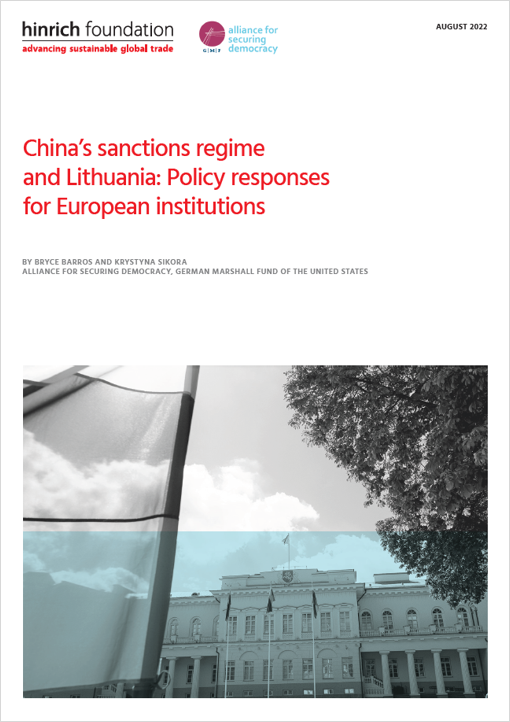Trade and geopolitics
China’s sanctions regime and Lithuania: Policy responses for European institutions
Published 16 August 2022
China's comprehensive sanctions regime against Lithuania underlines the grave need for Europe to bolster its resilience to economic coercion. As EU officials begin the process of adopting the Anti-Coercion Instrument (ACI) and other strategies to protect trade interests, understanding China’s actions is the key to adapting to the age of weaponized trade.
Under the backdrop of shifting Sino-European relations, the deterioration of Sino-Lithuanian relations came to a head in 2020. In April that year, about 200 Lithuanian politicians expressed to the country's president their desire for the government to support Taiwan’s involvement in the World Health Organization. Closer informal diplomatic relations between Lithuania and Taiwan led to Lithuania’s desire to pull out of the 17+1 China-Central and Eastern European Countries Cooperation framework, and allow Taiwan to open a representative office in Vilnius using the name “Taiwan” instead of “Taipei.” In reaction, China launched its most comprehensive sanctions regime against an individual country to date.
Through a series of questions divided into two parts, this report examines how the Chinese government sanctioned Lithuania and used secondary sanctions in service of their geopolitical goals. The first part of this report explains the actions of the Chinese government and the second part explains the EU’s use of the Anti-Coercion Instrument to blunt future economic punitive actions against the European Common Market. The third section provides four policy recommendations to European leaders on how to respond to future instances of economic coercion by large countries like China.
© The Hinrich Foundation. See our website Terms and conditions for our copyright and reprint policy. All statements of fact and the views, conclusions and recommendations expressed in this publication are the sole responsibility of the author(s).







